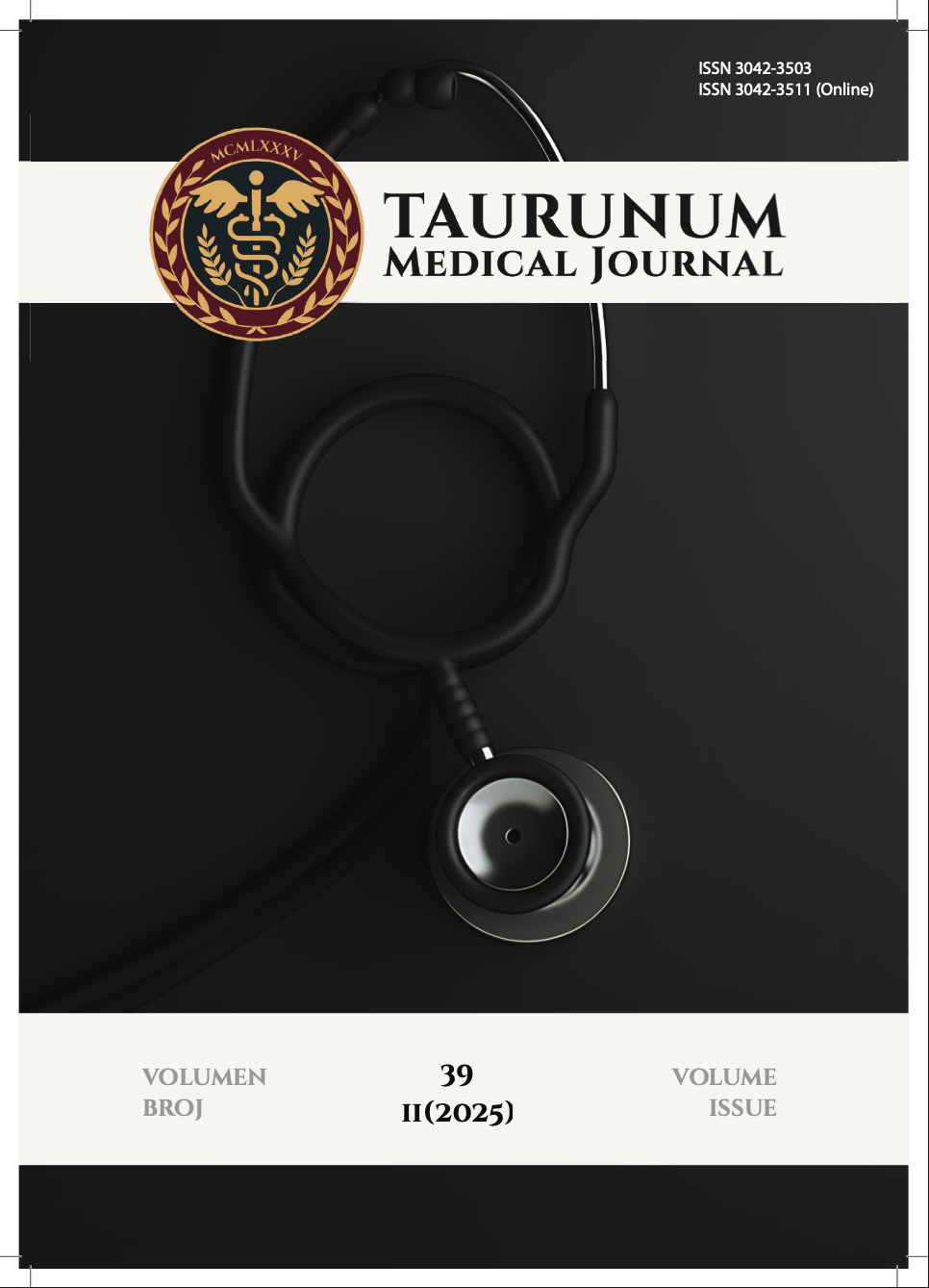
More articles from Volume 34, Issue 1, 2018
An immunohistochemical analysis of angiogenic profile in T1 bladder cancer with concomitant carcinoma “in situ”
Crosstalk between NCAM/FGFR and TGF-beta signalings: an in vitro study and evaluation of human kidney biopsies
Primary sinovial sarcoma of the lung - a case report
Hyperostosis frontalis interna: case report
Proliferation marker Ki-67 in early breast cancer
Article views
Citations

0
EGFR mutations in lung carcinomas and quality of samples tested at Institute of Pathology, School of Medicine in Belgrade
Laboratory for Molecular Pathology, Institute of Pathology Prof. Dr Djordje Joannovic, School of Medicine, University of Belgrade , Belgrade , Serbia
Institute of Pathology Prof. Dr Djordje Joannovic, School of Medicine, University of Belgrade , Belgrade , Serbia
Laboratory for Molecular Pathology, Institute of Pathology Prof. Dr Djordje Joannovic, School of Medicine, University of Belgrade , Belgrade , Serbia
Laboratory for Molecular Pathology, Institute of Pathology Prof. Dr Djordje Joannovic, School of Medicine, University of Belgrade , Belgrade , Serbia
Institute of Histology and Embriology Aleksandar Dj. Kostic, School of Medicine, University of Belgrade , Belgrade , Serbia
Institute of Pathology Prof. Dr Djordje Joannovic, School of Medicine, University of Belgrade , Belgrade , Serbia
Klinika za pulmologiju, Klinicki centar Srbije , Beograd , Serbia
Medicinski fakultet, University of Belgrade , Belgrade , Serbia
Klinika za pulmologiju, Klinicki centar Srbije , Beograd , Serbia
Medicinski fakultet, University of Belgrade , Belgrade , Serbia
Institute of Pathology Prof. Dr Djordje Joannovic, School of Medicine, University of Belgrade , Belgrade , Serbia
Laboratory for Molecular Pathology, Institute of Pathology Prof. Dr Djordje Joannovic Serbia
School of Medicine, University of Belgrade , Belgrade , Serbia
Published: 01.04.2018.
Volume 34, Issue 1 (2018)
pp. 52-52;
Abstract
Aim: To examine the quality of tested lung carcinoma samples, frequency and type of EGFR mutations, and their correlation with patients clinical characteristics (gender, age, smoking habits, clinical stage). Introduction: Mutations in Epidermal Growth Factor Receptor (EGFR) have a role in lung carcinoma development and they are more prevalent in women and non-smokers. Evaluation of EGFR mutations in lung carcinomas in mandatory for targeted therapy with tyrosine kinase inhibitors. Test performance depends on the quality of tested samples and a test type. Material and Methods: We evaluated reports of EGFR mutation real-time PCR analyses in lung carcinoma samples performed from June 2017 till February 2018. Presence of mutations was correlated with clinical characteristics of lung carcinoma patients. Results: A total of 341 samples was received for testing, among which 40 (11.7%) was unsuitable for analysis due to a low tumor cell content (<5%). Three types of mutations were detected in a total of 24 (8%) cases: L858R in 12 (50%) cases, exon 19 deletion in 10 (41.7%) cases, and G719A/C/S in two cases (8.3%). Mutations were more prevalent in women (13.7%) then in men (4.3%) (p=0.004). Patients with EGFR mutated tumors were older (67,6ą9,4 years), compared to those with non-mutated tumors (62,3ą8,8 years) (p=0,003). Smoking habits and clinical stage were not associated with mutation status in lung carcinomas. Mutations were detected only in adenocarcinomas. Conclusion: Our results suggest the low frequency of EGFR mutations in tested patients, but they are more prevalent in women and older patients.
Keywords
Citation
Copyright
This is an open access article distributed under the Creative Commons Attribution License which permits unrestricted use, distribution, and reproduction in any medium, provided the original work is properly cited.
Article metrics
The statements, opinions and data contained in the journal are solely those of the individual authors and contributors and not of the publisher and the editor(s). We stay neutral with regard to jurisdictional claims in published maps and institutional affiliations.




